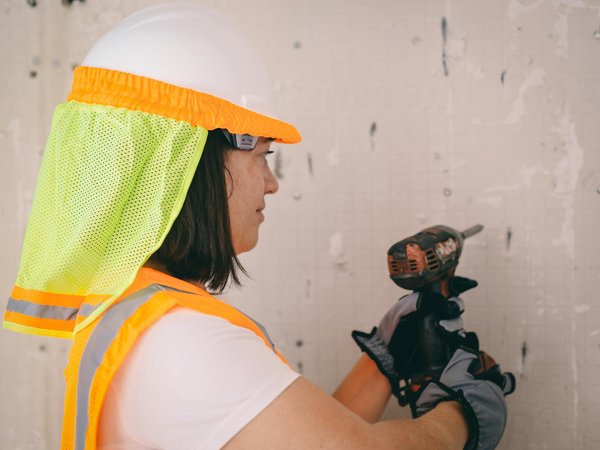
Creating the perfect nest for your little ones
Babycribstation is your go-to destination for expert guides, practical tips, and inspiration on everything from nursery design to child-safe home improvements. We help parents transform their houses into warm, functional spaces where families thrive.
Explore our family home resources
From nursery essentials to backyard play areas, discover comprehensive guides for every room and project
Deco
Interior decoration and trends
View articles →Equipment
Equipment and appliances
View articles →Garden
Gardening, plants and outdoors
View articles →House
Home maintenance and living
View articles →House moving
Moving tips and organization
View articles →News
Home and housing news
View articles →Real estate
Property, buying and renting
View articles →Swimming pool
Pools, spas and maintenance
View articles →Works
Renovation and DIY projects
View articles →
Everything you need to know about family-friendly living
Our editorial team researches and publishes detailed articles covering all aspects of creating safe, beautiful, and functional spaces for growing families. Whether you're preparing a nursery or child-proofing your pool area, we've got you covered.
- Comprehensive buying guides and comparisons
- Safety tips and child-proofing strategies
- Design inspiration for every room
- Seasonal maintenance checklists
Latest articles
Our recent publications

Charming Simplicity: Best Low-Upkeep Garden Elements for Stunning UK Residences
When planning a garden for the UK climate, consider incorporating a mix of low-maintenance plants. These drought-resista...

Ultimate guide to successfully retrofitting your uk home with a heat pump: key tips and tricks
A heat pump is an innovative device that transfers heat from one place to another, effectively providing heating and coo...

Comprehensive blueprint for designing a productive rainwater harvesting system for lush gardens in the uk
Rainwater harvesting is the process of collecting and storing rainwater for later use, crucial for both environmental su...

Designing an Allergy-Safe Haven: Essential Landscaping Tips for Asthma-Friendly Gardens in the UK
Navigating the world of allergies is essential for every garden enthusiast, especially in the UK where diverse plant lif...

Ultimate homeowner"s blueprint: how to install a greywater recycling system for eco-friendly living in the uk
Greywater recycling is a crucial part of eco-friendly systems and a path towards sustainable living. It involves the reu...

Thriving hydroponics in small spaces: the ultimate guide for uk residents to cultivate an abundant garden in your compact flat
Hydroponics is a fascinating method of soilless gardening that allows plants to grow in a nutrient-rich water solution, ...

The definitive handbook for choosing top cavity wall insulation for homes in the uk
Cavity wall insulation is a crucial component in modern building efficiency. Commonly used materials include mineral woo...

Embracing vintage elegance: chic strategies to infuse retro decor into your contemporary uk apartment
The concept of vintage decor carries a timeless allure in home design, offering a connection to the past while enhancing...

Top Strategies for Utilizing Mirrors to Maximize Natural Light in Your UK Home
Natural light is an invaluable asset to both mental and physical health. Psychological effects associated with exposure ...

Revitalize your uk townhouse backyard: a comprehensive guide to crafting a tranquil japanese garden retreat
Japanese garden design is revered for its ability to create a sense of tranquility and balance in various landscapes. At...

Discover matisse posters with vibrant colors and 20% off
Experience the bold, vivid charm of Henri Matisse through stunning posters that brighten any space. Enjoy 20% off on a c...

Explore colorful matisse posters and enjoy a 20% discount
Discover the vibrant world of Matisse through a carefully curated selection of colorful posters that brighten any space....

Selecting the perfect foundation for your conservatory in the uk's tough clay soil
Before embarking on any construction, understanding clay soil properties is crucial, especially within the context of th...

Ultimate guide to maintaining your uk home"s chimney for peak performance
Ensuring chimney maintenance becomes a top priority for homeowners due to its significant impact on both safety and effi...

Effortless Home Transition: Expert Tips for Integrating a Vibrant Outdoor Garden
Designing a balanced indoor-outdoor flow is crucial for enhancing the overall appeal of your home. Garden integration is...

Top strategies for protecting your confidential documents during your uk home move
## Importance of Protecting Confidential Documents During a Move Relocating a home is often chaotic, but **protecting c...

Your complete handbook for planning a neighborhood yard sale before relocating in the uk
A neighborhood yard sale offers numerous benefits, chief among them being the perfect opportunity for decluttering. Befo...

Farmingdale observer: key insights for homeowners and gardeners
Farmingdale Observer serves as a vital resource for homeowners and gardeners, blending local news with practical advice....

Navigating dental care changes in 2023: essential insights on nhs coverage in the uk
The year 2023 brings significant changes in dental care across the UK, particularly under the NHS. These updates aim to ...

Ultimate guide: how to successfully lodge a noise complaint against your noisy neighbor in the uk
Dealing with noisy neighbours can be a frustrating and stressful experience, but there are steps you can take to address...

Unlocking property potential: the essential 2023 handbook for purchasing uk government auction homes
When it comes to buying a home, especially through a government auction, it's crucial to understand the process and the ...

Enhancing comfort and cutting costs: your ultimate guide to evaluating thermal efficiency in bristol semi-detached homes
In the midst of rising energy costs and the pressing need to combat climate change, enhancing the thermal efficiency of ...

Maximizing real estate worth: how local school ratings impact property values in surrey
When it comes to investing in real estate, several factors can influence property values, but one of the most significan...

Ultimate resource for assessing the structural integrity of a historic edinburgh townhouse over a century old
When it comes to maintaining and preserving historic buildings, especially those over a century old in a city like Edinb...

Chic serenity: crafting a low-maintenance pool oasis in the uk
Creating a pool that is both beautiful and low-maintenance requires thoughtful design and innovative technology. By cons...

Revitalizing uk swimming pools: innovative eco-friendly technologies for sustainable leisure
Understanding eco-friendly swimming pool technologies is essential in today's environmentally conscious world. These sus...

Transform your uk swimming pool: ultimate guide to adding stunning water features
In the UK, the allure of swimming pool enhancement with water features has grown substantially. These additions not only...

Essential tips for enhancing privacy in brighton"s vibrant communities
In the bustling urban environment of Brighton, privacy challenges have become increasingly significant. As the city grow...

Mastering moisture management: proven techniques to tackle condensation in your quaint welsh cottage
Moisture management in Welsh cottages is essential due to various sources, such as rain, high humidity, and poor ventila...

Top strategies for effective draught-proofing your picturesque lake district farmhouse
Understanding the draught-proofing benefits in Lake District farmhouses is crucial for both energy efficiency and farmho...